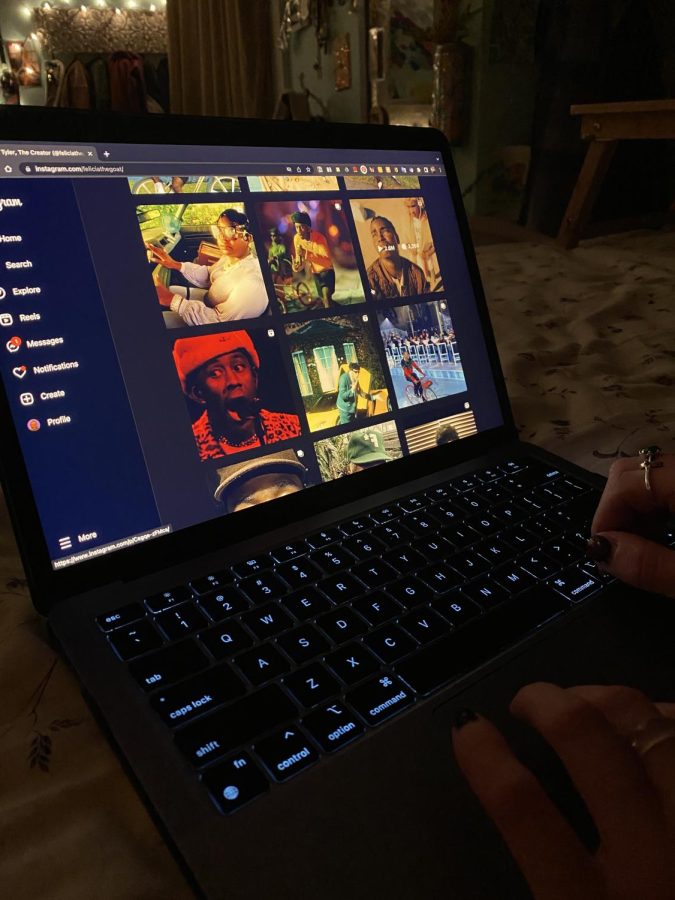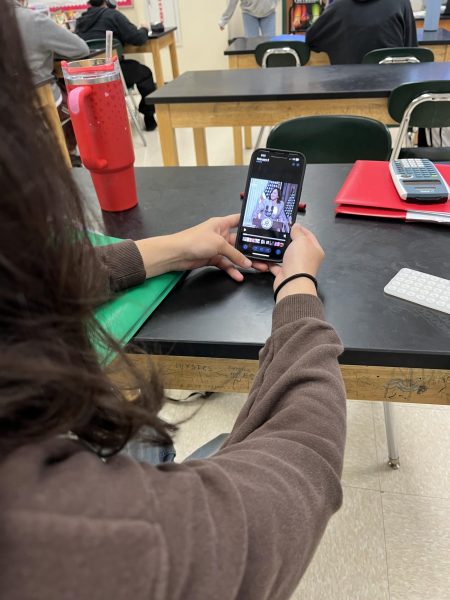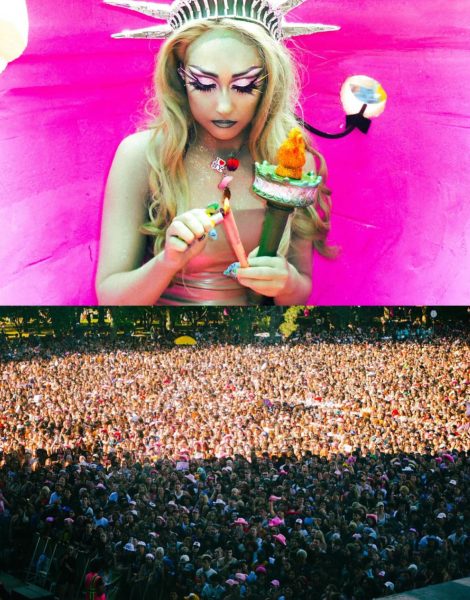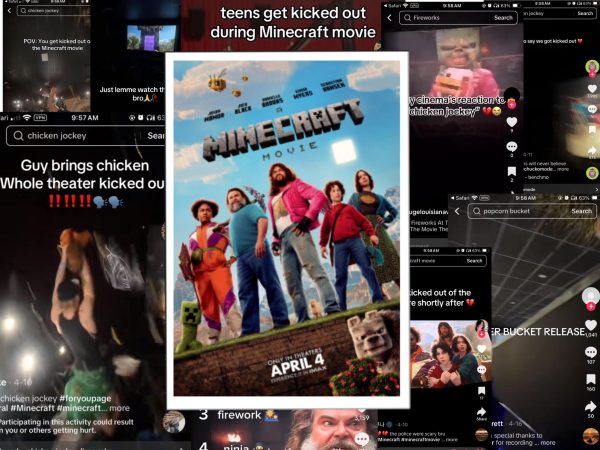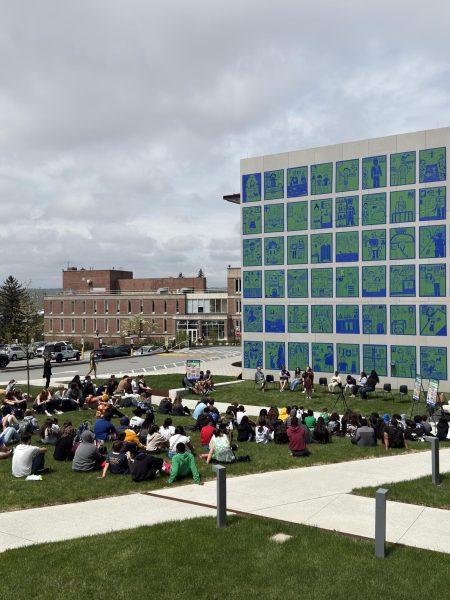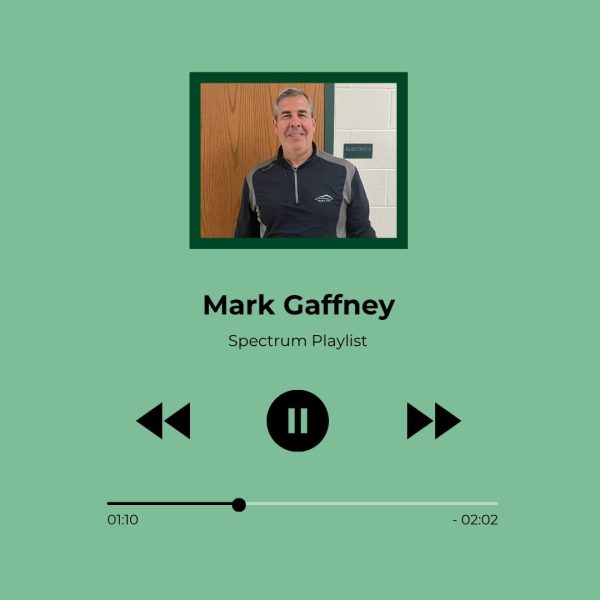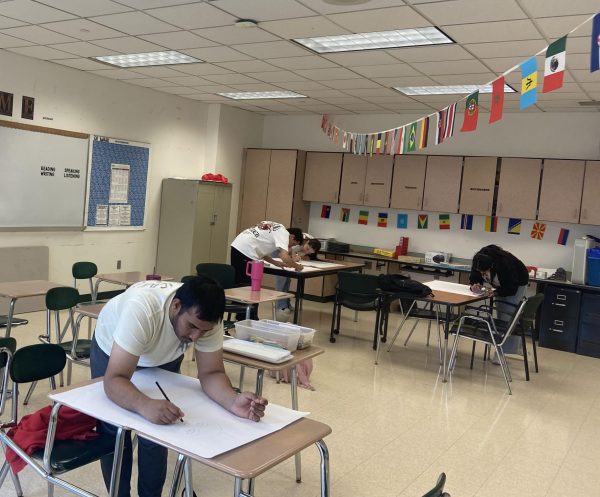The Unsustainable Weight of Teenage Expectations
Being a teenager, and the type of life that is archetypal during this time period, is consistently romanticized in the media we consume. It’s repeatedly illustrated to be this magical time of your life that makes you eager to live it. Whether it’s a TV show like Euphoria or sneak peaks into idealized lifestyles from Instagram and YouTube influencers, immediately accessible media and the expectation to reach the hypersexual, experimental, and wild ways of teenage life included in this media, have distorted and dismantled the core lessons that make coming of age such a significant and nostalgic experience.
The conditions of being human have proven to be the most challenging parts of being a teenager. Jealousy, faded friendships, broken hearts, and constantly changing identities, make high school this other worldly microcosm of infinite and intertwining relations. Due to this chaotic process of trying to make sense of who you are and who others are to you, teenagers appreciate picturesque moments to an almost dangerous extent. It’s a never-ending search for the moments that provide comfort and solace, the ones where you’re able to reflect on your life and what will be in the future while the whirlwind of college, grades, friendships, family, financial worry, and the burden of remaining balanced enough mentally to deal with the obstacles of becoming a person, fly around you uncontrollably.
These moments were emptily promised to us by our idols, promised to us by the fantastically vibrant stories we read as kids, and glorified by the societal need to reach perfection. A life balanced by having friendships like the ones on Disney Channel, having an hourglass figure from only eating organic and clean food, participating in a high school sport, having straight A’s, and developing a unique personality that also fits into societal expectations.
Your parents and teachers expect you to be smart in the way that America deems useful, your friends require you to be in the know of everything new on social media, and the world needs you to grow up fast in order to be considered ‘successful.’
As a collective human race, we’ve all at least experienced the feeling at least once, a moment that may be fleeting but filled with pure warmth and melancholic relief, relief that this weird timeline we’re all existing on has purpose and the ways we try to reach this purpose have paid off. These moments, for me at least, occur when my reality meets with the occurrences of movies and books, watching the sunset on a beach in Westport during the summer with a good friend by your side and Mazzy Star serenading the last few minutes of sunlight. In that moment, life is flawless.
It’s an awe-filled thing to have happen to you: you sometimes even feel like you’re floating, above it all, above the chaotic whirlwind. But then, reality seeps in, and clouds the effervescent sight of that wonderfully framed, orange-tinted sky. It’s cold now, and the mosquitos are starting to bite. That one essay you’ve been putting off, a chore you forgot to do yesterday, it all comes back in a sudden flash, and the uplifting hope about life that enveloped you a minute ago is nowhere to be found. This is the part that’s dangerous.
We all look for gratification, things that bring us pleasure, releasing bits of precious dopamine in our brain. In this day and age, the majority of this pleasure comes from technology, instant gratification from social media, and doom scrolling. This trains our brain to expect the pattern of quick action and quick reward. It deters our need to work for gratification. Why read a book for a satisfying ending a week in the future when you can get a few good laughs out of five minutes of being on TikTok? Technology allows us to be exposed to multiple pieces of media within a short time period, facilitating mood swings from one piece to another. Due to this overstimulation, the lows and highs of life have become way more extreme for teenagers and young adults, as we are the age group that utilizes the internet the most.
This altered way of brain function combined with the type of media consumed by kids my age is what causes us to be such a demotivated, hopeless, and depressed generation. Everyday is filled with unrealistic wants and treacherous disappointment when we aren’t able to make our lives match the ones we see online and picture in our heads. It’s also one of the reasons why teenagers are so apt to experiment with drugs, as the online world conveys drugs as a one-way ticket to the idyllic scenes social media provides.
The internet never shows the boring and hard parts of being a teenager, the hour-long classes, going to bed at 1 am because of homework (not because you’re sneaking out to go camping in the woods), and lulls of absolute unknown purpose. Because of this, when we experience it in real life, it feels wrong, and frankly sad, because we’re observationally taught that to have a fulfilling teenage lifestyle, constant involvement in exciting and daring things is necessary.

